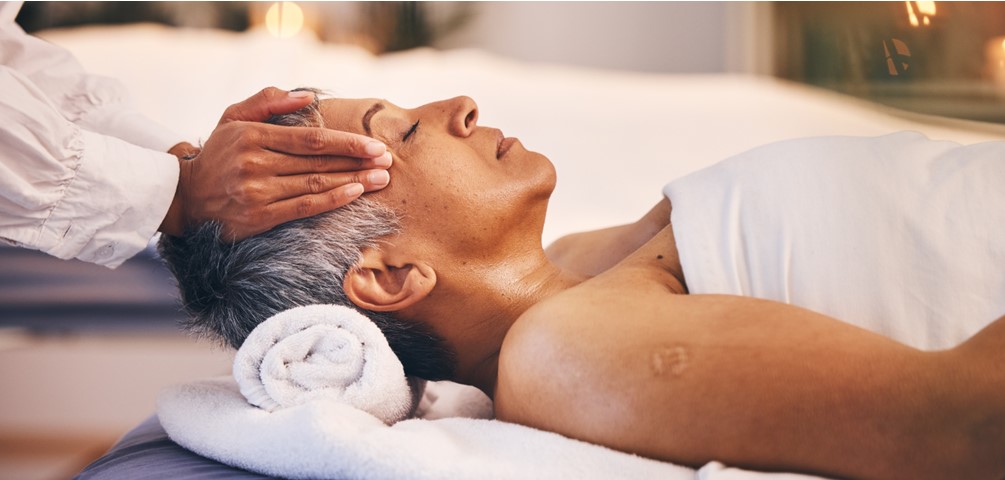Hospice care focuses on providing comfort, dignity, and support to individuals nearing the end of life. It not only addresses physical pain but also offers emotional, social, and spiritual care. In recent years, complementary therapies have played an increasingly vital role in enhancing the well-being of hospice patients. These therapies are designed to complement traditional medical treatments, offering a more holistic approach to care.
Understanding Complementary Therapies in Hospice Care
Complementary therapies refer to non-medical treatments that work alongside conventional care to improve the quality of life. These therapies include practices such as massage therapy, acupuncture, music therapy, aromatherapy, and meditation. Their primary goal is to reduce stress, manage symptoms, and provide emotional comfort to both patients and their families.
Many hospices, including those like a Virginia hospice, integrate complementary therapies into their care plans to offer a comprehensive approach to end-of-life care. This helps patients manage symptoms, alleviate pain, and feel a sense of peace during their final days.
Benefits of Complementary Therapies in Hospice Care
1. Symptom Management and Pain Relief
One of the main advantages of incorporating complementary therapies into hospice care is their ability to help with symptom management. For many patients in hospice, physical pain can be overwhelming. Therapies like acupuncture, massage, and aromatherapy have shown to provide significant relief by releasing tension in muscles, reducing inflammation, and promoting relaxation.
For instance, massage therapy is known to help relieve muscle stiffness and pain in patients with chronic conditions. Aromatherapy, which involves using essential oils, can reduce anxiety and stress, allowing patients to experience a sense of calm.
2. Emotional and Psychological Support
The emotional toll of end-of-life care is immense. Patients often struggle with fear, anxiety, and depression as they face the reality of their situation. Complementary therapies like music therapy and guided meditation can offer significant emotional support by providing moments of peace and introspection.
Music therapy, in particular, has proven effective in enhancing mood and offering emotional relief to hospice patients. It involves listening to calming music or playing instruments, which helps reduce anxiety, elevate mood, and improve overall well-being.
3. Enhancing Quality of Life
Hospice care emphasizes quality of life, and complementary therapies contribute greatly to this. Acupuncture, for instance, is known to alleviate pain, reduce nausea, and improve sleep. Similarly, art therapy offers patients an outlet for self-expression and helps them communicate emotions that may be too difficult to verbalize. These therapies allow patients to regain some sense of control and empowerment in their care.
In addition, these therapies are often tailored to the individual needs of each patient, making them highly personalized and effective. A holistic approach that considers both mind and body can bring peace and solace during one of life’s most challenging moments.
Types of Complementary Therapies in Hospice Care
1. Massage Therapy
Massage therapy is commonly used in hospice care to alleviate physical discomfort. It works by improving circulation, relieving muscle tension, and promoting relaxation. Massage can also improve sleep and decrease symptoms of anxiety and depression, contributing to a better quality of life.
2. Acupuncture
Acupuncture, a practice rooted in Traditional Chinese Medicine, involves inserting thin needles into specific points of the body to restore balance and alleviate pain. In hospice care, acupuncture is used to treat various symptoms such as pain, nausea, and insomnia.
3. Music Therapy
Music therapy has become an integral part of hospice care due to its profound emotional and psychological benefits. It helps to reduce anxiety, promote relaxation, and provide comfort. Whether it’s listening to soothing music or engaging in musical activities, this therapy can uplift the spirits of patients during difficult times.
4. Aromatherapy
Aromatherapy involves using essential oils to promote relaxation and reduce stress. Commonly used oils such as lavender, peppermint, and eucalyptus can help manage symptoms like nausea, pain, and anxiety. This therapy can be a simple yet effective way to bring comfort and ease to hospice patients.
5. Meditation and Mindfulness
Mindfulness and meditation practices encourage patients to focus on the present moment and cultivate a sense of peace. These techniques can be particularly beneficial for patients dealing with anxiety, fear, or emotional distress. Meditation can lower stress levels, enhance mood, and provide patients with a sense of inner peace.
The Growing Popularity of Complementary Therapies in Hospice Care
Over the past decade, complementary therapies have gained widespread acceptance in hospice care settings. Many families and patients have reported significant improvements in emotional, mental, and physical well-being due to these therapies. The benefits go beyond the patient, as caregivers and family members also experience relief through some therapies like massage or meditation.
The increasing recognition of these therapies has led many hospices to adopt them as a core part of their care plans. Patients appreciate having access to both traditional medical treatments and therapies that address their emotional and spiritual needs.
Conclusion
The integration of complementary therapies in hospice care is revolutionizing the way patients experience end-of-life care. By focusing on the whole person—body, mind, and spirit—these therapies provide relief from pain, alleviate emotional distress, and enhance the overall quality of life. For patients seeking a more personalized and holistic approach to care, hospices, including a Virginia hospice, offer a range of complementary therapies designed to provide comfort and dignity in their final days.
As the demand for these therapies continues to grow, so too does the recognition of their value in enhancing the overall hospice experience. Complementary therapies not only support patients physically but also emotionally and spiritually, ensuring a more peaceful and dignified journey through the end of life.





